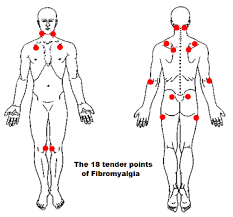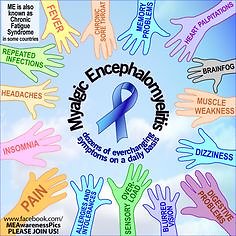FIBROMYALGIA AND I
Having suffered from a young age with Fibromyalgia and M.E for over 20 years, I understand the deep pain, fatigue, anxiety, depression, insomnia and all the frustration these illnesses can bring. I am very passionate in supporting sufferers to gently step forwards towards a healthy new beginning of a pain free, healthy, balanced, happy life. Working alongside The Chrysalis Effect Team offering a fully integrated package of care which is a proven, valuable resource providing the expertise and support to lead to full recovery.
(Chrysalis effect 30 day FREE trail)
On my search and through my own healing, I have learnt how important Nutrition, Naturopathy with supplementation and Holistic treatments are to help the conditions. It took me 9 years to investigate on my own,with the help of my amazing GP and oh how I wish there was this information all in one place and at my finger tips and surrounded by a team of support in any area needed, it would have made my recovery so much quicker. So I trained as a Holistic Therapist and Naturopath in my journey to be able to help others.
My first advice is to get a proper diagnosis of all the underlying causes. This can include both conventional and alternative diagnostic methods. An integrated approach is needed, in which the medical and naturopathic perspectives are both utilised and respected.
(Lab test, click here), you can order testing yourselves or via myself. If you would like advice on which tests are needed please feel free to message me.
There are many causes of this illness and there are many areas of help. What may work for one person may not work for another due to biochemical individuality. Again, professional advice is one of the best investments you can make to help yourself through the maze of information offered for this illness.
There are a number of factors contributed to your decline in your health and therefore those different factors will need to be addressed in order to influence your ability to heal. The combination of these factors put significant demand on your bodily systems, activating the sympathetic nervous system and what is commonly known as the Fight or Flight response. This moves your body into a state of survival. If this continues over a prolonged period the immune system is suppressed, reducing your body’s ability to heal.
Given that there are multiple factors contributing to the onset of these conditions, it would make sense that an individual approach is necessary in order to facilitate sustainable results. Addressing the body as a whole and working with the different factors in the correct order can facilitate a return towards normal function of all systems and in turn improved health.
The Fight or Flight response is part of our stress reaction.
The term stress is more commonly used to describe a bad day or having too much to do at any one time, but usually well within our capabilities to manage. However, the significant demand that has been put on your body far exceeds this - it is the same as comparing the fatigue experienced as part of ME/CFS/FM with being naturally tired - and it can be the result of a physical stress such as a bacteria or virus, in addition to emotional stressors. So, yes we are addressing the stressors you experience on a day to day basis, including the the social and financial implications illness will be having on your life. We are also very importantly addressing the roots of many of the contributing factors which have had significant impact on your stress response and your health.
"Any treatment which reduces the stress response may improve chronic fatigue syndrome and many other conditions"
- Professor Leslie J Findley, MD, MRCS, DRCOG, DCH, FRCP Consultant Neurologist with Barking, Havering and Redbridge NHS Trust.
If you or someone you know is suffering from Fibromyalgia, M.E or Chronic Fatigue Syndrome, please feel free to email me for further information in helping you to feel better.
FIBROMYALGIA
Please be encouraged by the fact that these conditions can be helped by natural protocols and you do not have to suffer life long. Please feel free to contact me for further information for help. The below is a generic description the condition.
Fibromyalgia is a chronic long term disorder characterised by widespread pain, fatigue, sleep disturbances,insomnia and cognitive impairments.
The term 'fibromyalgia' is a combination of three words:
Fibro - a Latin word meaning fibrous tissues, such as tendons and ligaments.
My - from the Greek word "myo" meaning muscles
Algia - a Greek word meaning pain.
So fibromyalgia means "fibrous tissue and muscle pain."
Thanks to much research and the advancement of brain-imaging technology, leads to the belief currently held by most that fibromyalgia is actually a disorder of the central nervous system, which causes abnormal pain processing and results in pain amplification. Long time FM researcher, Dr. Daniel Clauw, describes fibromyalgia as "the poster child for a 'centralised' pain state."
Fibromyalgia, also called fibromyalgia syndrome (FMS), is a long-term condition that causes pain all over the body.
As well as widespread pain, people with fibromyalgia may also have:
- Increased sensitivity to pain.
- Fatigue (extreme tiredness), The sensation of being drained of energy and unable to concentrate can vary from mild to incapacitating.
- Muscle pain and stiffness, often described as a deep muscular aching that is either burning, throbbing or sharp. The pain and stiffness is often worse in the morning but may be an all day depending on your phase.
- Difficulty sleeping and Insomnia, waking unrefreshed. Sleep does not feel refreshing; and fibromyalgia patients report feeling exhausted when they wake up.
- Problems with mental processes (known as "fibro-fog") – such as problems with memory and concentration, word mix up.
- Clumsiness and dizziness.
- Headaches and migraine.
- Sensitivity to light and noise, smoke,medications or other environmental factors.
- Allergies.
- Food sensitivities or allergies.
- Irritable bowel syndrome (IBS) – A digestive condition that causes stomach pain and bloating.
Other fibromyalgia symptoms may include dizziness or light-headedness, menstrual cramping, jaw pain, numbness and tingling sensations, temporomandibular joint disorder, pelvic pain, restless leg syndrome, sensitivity to chemicals and temperature, and anxiety and depression. These symptoms can vary in intensity.
If you think you have fibromyalgia, OR have been diagnosed with fibromyalgia please feel free to contact me for further information with regards to a natural way to recovery.
Diagnosis
Fibromyalgia is not new, but for most of the last century it was difficult to diagnose for the medical profession. Part of the problem has been that the condition could not be identified in the standard laboratory tests or x-rays. Moreover, many of its signs and symptoms are found in other conditions as well – especially in chronic fatigue syndrome (CFS).
Two Canadian doctors developed a way of diagnosing fibromyalgia in the 1970's and in 1990 an international committee published requirements for diagnosis that are now widely accepted. Once other medical conditions have been ruled out through tests and the patient’s history, diagnosis depends on two main symptoms:
Because none of the symptoms of fibromyalgia are unique to this condition, Dr's cannot make a diagnosis based on the presence of one or more of them. Instead, today's diagnostic criteria specify that patients must have had pain in four quadrants of the body for a minimum of three months and tenderness in at least 11 of 18 specific areas called "tender points" on the neck, shoulders, back, hips, arms or legs that hurt when touched.
(M.E) MYALGIA ENCEPHALOMYELITIS/ (CFS) CHRONIC FATIGUE SYNDROME
Please be encouraged by the fact that these conditions can be helped by natural protocols and you do not have to suffer life long .Please feel free to contact me for further information for help. The below is a generic. The below is a description the condition.
Myalgic encephalomyelitis (ME) and chronic fatigue syndrome (cfs), are characterised by a range of neurological symptoms and signs, muscle pain with intense physical or mental exhaustion, relapses, and specific cognitive disabilities. The World Health Organisation’s International Classification of Disease lists ME as a disorder of the nervous system.
The Symptoms of M.E/CFS
- Fatigue, characterised as a profound loss of energy.
- Worsening of symptoms after physical or mental exertion (post-exertional malaise, or PEM).
- Cognitive function problems.
- Attention deficit disorder (inability to concentrate).
- Feeling "spaced out" or "cloudy," "brain fog".
- Calculation difficulties.
- Memory loss.
- Spatial disorientation.
- Word searching or saying the wrong word.
- Sleep disturbance, unrefreshing sleep.
- Flu-like malaise, feeling "sick all over", or "poisoned".
- Sore throat.
- Low-grade fever or feeling hot often.
- Low body temperature.
- Muscle and joint aches with or without "trigger points".
- Headache.
- Changes in vision.
Other symptoms include, Numbness or tingling sensations, Loss of balance, dizziness, Unusually vivid dreams, nightmares, or lack of dreams, Depression, Anxiety, panic attacks, Personality changes, Mood swings, Difficulty moving the tongue to speak, Tinnitus (ringing in the ears), Paralysis, Severe muscle weakness, Difficulty walking, Blackouts, Photo-phobia (light sensitivity), and increased sensitivity to noise, smells, touch, Alcohol intolerance, Changes in taste, smell, hearing, Decreased libido, impotence, Muscle twitches, Severe premenstrual syndrome (PMS) or exacerbation of symptoms before and during period, Weight changes, usually loss followed by gain, Painful, swollen lymph nodes, especially on the neck and underarms, Abdominal pain, diarrhoea, nausea, gas, irritable bowel, New allergic reactions to medicines, food, and other substances, Night sweats, Heart palpitations, Uncomfortable or frequent urination, Rash of herpes simplex or shingles, Flushing, rash, Hair loss, Chest pain, Dry eyes and mouth (sicca), Cough, dry, Canker sores, Cold hands and feet, Shortness of breath, Temperature and weather sensitivity, Symptoms worsen when standing up (orthostatic intolerance), Seizures, usually petit mal, but sometimes grand mal.
Diagnosis
As there is no specific diagnostic test for myalgic encephalomyelitis (ME), and as post-exercise ‘fatigue’ was one of its prominent symptoms,
The NICE Clinical Guideline:
''Most patients seeing a GP in the UK today are diagnosed using the criteria outlined in the NICE Clinical Guideline of 2007 (read the Guideline and supporting documentation here http://www.nice.org.uk/guidance/cg53/chapter/1-recommendations ). This Guideline makes clear that the illness is recognised on clinical grounds alone (i.e. that there is no specific ‘test’ for the illness) and that healthcare professionals should consider the possibility of ME/CFS if a person has:
a) Fatigue with all of the following features: - New or had a specific onset (that is, it is not lifelong),
- Persistent and/or recurrent,
- Unexplained by other conditions,
- Has resulted in a substantial reduction in activity level,
- Characterised by post-exertional malaise and/or fatigue (typically delayed, for example by at least 24 hours, with slow recovery over several days).
and
b) one or more of the following symptoms: - Difficulty with sleeping, such as insomnia, hypersomnia,
- Unrefreshing sleep, a disturbed sleep–wake cycle,
- Muscle and/or joint pain that is multi-site and without evidence of inflammation,
- Headaches,
- Painful lymph nodes without pathological enlargement sore throat,
- Cognitive dysfunction, such as difficulty thinking, inability to concentrate, impairment of short-term memory, and difficulties with word-finding, planning/organising thoughts and information processing,
- Physical or mental exertion makes symptoms worse,
- General malaise or ‘flu-like’ symptoms,
- Dizziness and/or nausea,
- Palpitations in the absence of identified cardiac pathology.
It is important to stress, however, that M.E/CFS, whether defined by NICE or using another definition, remains a "diagnosis of exclusion", which means that other possible causes of a patient’s symptoms should be excluded, often by testing, before this diagnosis is given. As the NICE Guideline says, "A diagnosis should be made after other possible diagnoses have been excluded and the symptoms have persisted for 4 months in an adult [and] 3 months in a child." '' http://www.meresearch.org.uk/what-is-me/
Please Note – A positive diagnosis of M.E/CFS can only be determined by a suitably qualified medical practitioner, such as your own GP or a hospital consultant.
Please be encouraged by the fact that these conditions can be helped by natural protocols and you do not have to suffer life long.the below is just to describe the condition.
Living with M.E/CFS
The evidence across many studies is that between 120,000 and 240,000 people in the UK have M.E/CFS, a prevalence higher than HIV infection or multiple sclerosis. It is twice as commonly reported in women as men. Studies indicate that most people with M.E/CFS are unable to work to full capacity, and that a significant number (from 10 to 25%) are effectively house or bed-bound. Despite early reports about “Yuppie Flu”, it is now known that M.E/CFS affects all social groups and all ages, including children. The course of the illness can be extremely variable; some people improve quite quickly, while many others develop stable chronic illness, and a few experience a severe and debilitating downward course over many years. A report to the Chief Medical Officer of England in 2002 stated that M.E/CFS “is a genuine illness and imposes a substantial burden on the health of the UK population. Improvement of health and social care for people affected by the condition is an urgent challenge”, and this remains true today.







